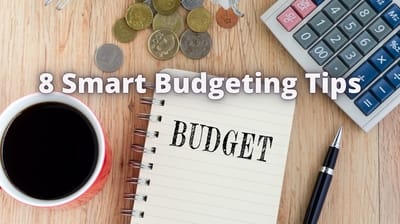
A lot of young adults are starting to educate themselves on personal finance and are being told to start an emergency fund.
An emergency fund is anywhere from 3-6 months worth of expenses and these funds should only be spent on unexpected circumstances.
But here’s the thing, a lot of these young adults, usually between the ages of 18-28 are still living with their parents and therefore have very little expenses. So, you can see why a young adult still living with their parents would wonder whether or not they still need an emergency fund.
But here’s the thing.
Regardless of if you live with your parents, if you are over the age of 18, you should have an emergency fund. Where you live will impact how much money you need to have saved in your emergency fund, but it shouldn’t determine whether or not you need an emergency fund.
In other words, living with your parents means you probably won’t need as much emergency fund saved away, but it doesn’t mean you shouldn’t have an emergency fund at all.
Will talk about this more in the next section. But if you don’t have time to keep reading, just know that you should still have an emergency fund even if you are living with your parents.
Why Do You Still Need an Emergency Fund While Living with Your Parents?
Hopefully if you are over the age of 18 you have started to take on some financial responsibility and have some expenses of your own.
For example, maybe you have a car? What about gas? Gym membership? Car insurance? Do you pay for your own food? Entertainment costs? Netflix and Spotify?

You get the point, once you become a young adult, expenses start adding up. They come from everywhere!
And it’s because of these expenses that you still need to have an emergency fund. Let’s say your monthly expenses are $700. $100 for the gym, $400 for the car and another $200 for things like food and entertainment.
In this situation, I’d recommend putting away anywhere from $2,100-$4,200 in your emergency fund.
For one, this will prevent you from having to ask your parents for money if you lost your job or stopped earning money, but it’ll also give you a sense of security and a warm fuzzy feeling inside in knowing that you’re in a good place financially.
Not only that, but what if you are hit with an unexpected expense like your car engine crapping out on you? Well in that case, you’ll definitely want a few thousand dollars at your disposal to avoid going into debt.
Again, if you are still living with your parents, they must be nice, reasonable people! So for sure, they might be able to bank roll you in case you lose your job, run low on money or have a large unexpected expense come up, but the earlier you can start taking control of your personal finances and paying for things yourself, the better.
How Much Emergency Fund Is Needed While Living With Your Parents?
Now you may be wondering how much money you need stored away in an emergency fund while living with your parents, and lucky for you, the answer is quite simple.
3 to 6 months worth of expenses. Yup, the equation does not change.
While certainly living with your parents will reduce your expenses, but the formula stays the same.
Related Financial Geek Article: How Much Money Should a Teenager Save?
I consider myself a pretty conserative person so I always like to have closer to six months saved up, but whatever works for you, make sure you have at least three months though.
So what I would recommend is starting a spreadsheet and listing all your expenses on it line by line. Then multiply your monthly expenses by 3-6 times.
As you can see from my image below, I have all my expenses outlined and then I multiply them by 6, this gives me a sum of $9,571. So I know that I need to have this amount in my emergency fund at all times.

Obviously my expenses are going to be different than yours, if you are living at home then you won’t have any mortgage or rent payments, but the process of how I calculated my emergency fund amount will stay the same, regardless of where I live.
So I can’t give you an exact amount on how much you’ll want to have saved in your emergency fund while living with your parents, but this process should help you easily figure it out yourself.
To recap, open up an excel spreadsheet, make a list of all your monthly expenses, multiply it by 3-6, and then save that much. The end.
Simple enough right?
Quick Note #1 – Keep this spreadsheet handy and continually update it as your expenses change, then make necessary changes to your emergency fund as your monthly expenses fluctuate.
Where Should You Save Your Emergency Fund?
You already now know that if you are over the age of 18 and still living with your parents, you should still have an emergency fund.
But where should you save your emergency fund?
As I talk about in my article Emergency Fund | How Much Should I Have Saved?, there are lots of different places where you can save your emergency fund.
- High Interest Savings Account
- Low Risk Investments (Bonds)
- Hidden in Your House in Cash
I personally think your best option is a high interest savings account. That’s where I keep mine. I don’t make much in interest, maybe 1%, but I don’t care.

In fact, if you account for inflation, I am probably losing money, but again, I really don’t care.
You shouldn’t look at your emergency fund as a place for you to make money, it’s almost like an insurance policy, and hey, insurance costs money.
The thing I love about high-interest savings accounts is that the money is so liquid, but at the same time so safe.
If you store all emergency fund savings in a jar at your parents house, then you run the risk of it being stolen or damaged.
If you put your money in low risk investments like Bonds, CDs or GICs, then it’ll take a bit longer to access it when you really need it most.
Why? Because you need to give the financial institutions time to sell off your investments and then transfer the balance into your bank account, this can take anywhere from 3-14 business days depending on how much you are trying to liquidate.
So keep this in mind when deciding on where to store your emergency fund money. Of course you want it to be safe, but you also want to be able to access it quickly. If you make a few dollars in interest each year then great, but again, that’s not the goal here.
Quick Note #2 – Don’t invest your emergency fund in stocks or any type of higher risk investment like Cryptocurrency. You want to be 100% certain that you won’t lose any or your emergency fund money unless you’re spending it yourself.
Conclusion
So here’s the bottom line, if you are 18 years or above, you should still have an emergency fund even if you still live with your parents.
Not only is it a good idea to develop good financial habits before it’s completely necessary, but it’ll also make you more financially stable in case you do in fact lose your main source of income.
Again, I know it might not be that difficult for your parents to support you for 3-6 months, but the earlier you can become financially independent, the better off you’ll be.
So figure out what your monthly expenses are, multiply it by 3-6 depending on your preferences and then save up that amount.
I’d personally recommend a high interest savings account, but I really don’t care, just store the money somewhere safe that you can access relatively quickly.
Geek, out.



![Is $100,000 a Good Salary in America? [In 2023]](https://thefinancialgeek.com/wp-content/uploads/2022/01/Is-100000-a-Year-a-Good-Salary-1-1.jpg)


